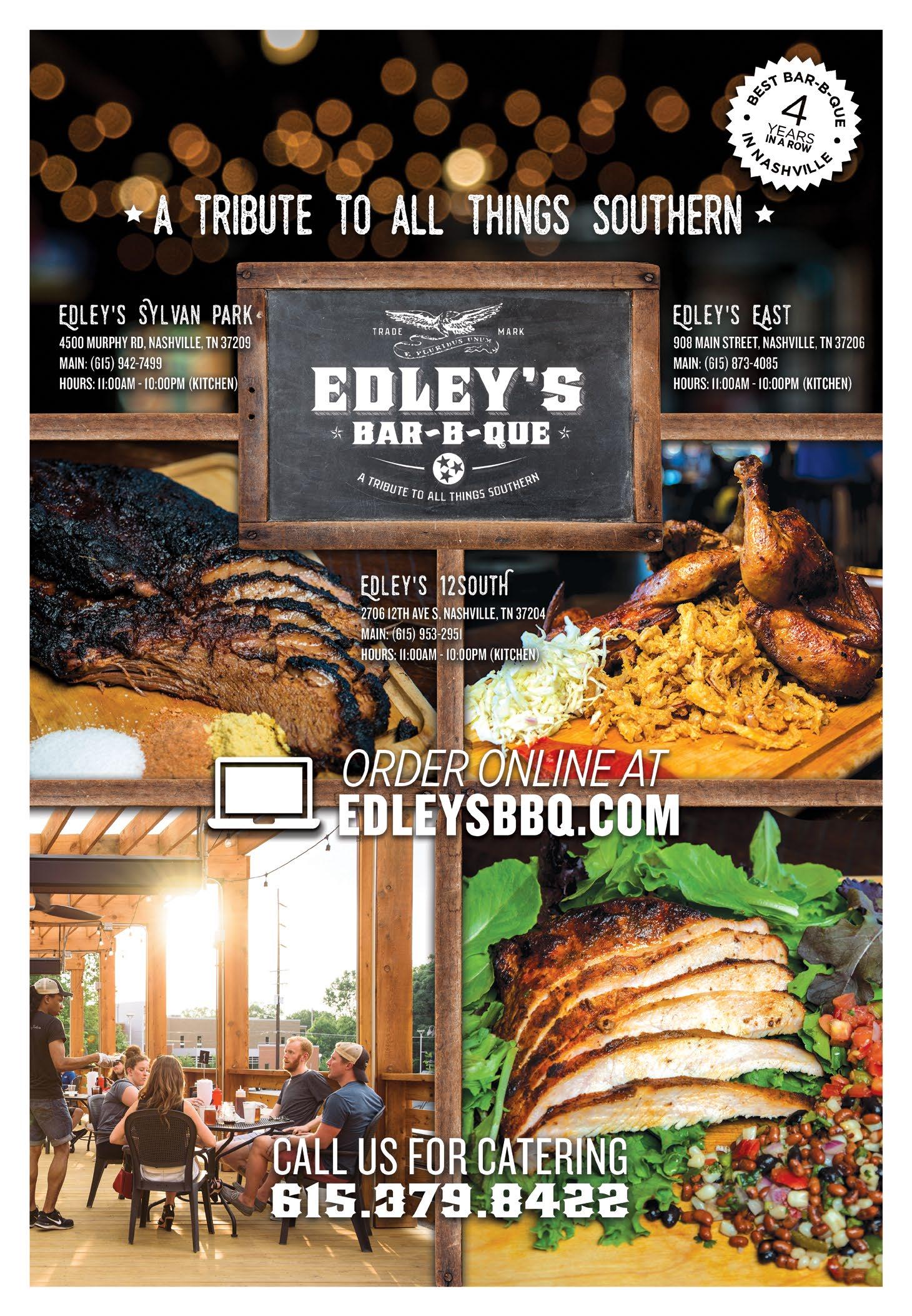












"It’s not the money, it’s more the people ... I get to experience the joy of once they get the painting." 3
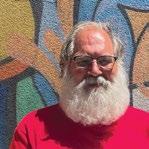

Contributor vendors write in this issue about God, music, shoes, harrassment and street talk.
La Noticia, one of the leading Spanish-language newspapers in the nation, brings Spanish content to The Contributor

Legendary Hong Kong filmmaker, John Woo reloads The Killer. Now streaming on Peacock!
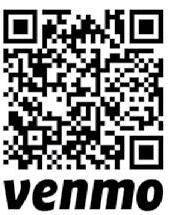
Any vendor of The Contributor can accept VENMO as payment. Technology is a barrier to those experiencing homelessness. Many of our vendors don’t have phones or bank accounts, or use online commerce. We simplified the Venmo process by using one account for all vendors. You must identify your vendor when using Venmo.
ADDITIONAL TIPS IF YOU'RE A FIRST TIME VENMO USER:
You must have a Vemno account to send a Venmo payment.
SCAN THE SQUARE QR CODE above or in the top left corner of the cover of this paper using your phone or tablet camera.
Click the blue “Pay or Request” button on The Contributor's account.
Type in the amount you wish to pay The paper costs $2. Tips are welcomed. Vendors get all the money you send by the next business day.
Type your vendor's name and four digit badge number in the “What’s this for?” box. You must identify the vendor you are paying. Their name and 4 digit



badge number may be written on the front cover of the paper below the QR code.
The first time you pay The Contributor using Venmo you will probably be asked to enter the last 4 digits of their phone number to verify you know who you're sending to. Type 6829 in this field.
Since The Contributor started in 2007, more than 3,200 different vendors have purchased $2.3 million worth of The Contributor and sold over six million copies, generating over $15 million in income for themselves.
In 2019, our C.O.V.E.R. Program (Creating Opportunity for Vendor Employment, Engagement, and Resources) was the natural expansion of our mission of removing obstacles to housing. We now offer full case management, assistance with housing and rental expenses, addiction recovery, health insurance, food benefits, and SSI/SSDI assistance. We see the one-stop-shop team approach radically transforming a vendor's image of self and their place in community.






Daniel H. is not the only artist who sells The Contributor, but he is among the most prolific. Even before he sold the paper, he was a member of Daybreak Arts’ (then called Poverty and the Arts) collective of creatives.
“I’ve changed the directions of my art. I’ve gone from doing straight painting of landscapes and stuff to portraits and abstract art, and I’ve also done 3D art. I’ve exhibited in London, here two times in the Frist Art Museum, I’ve done different coffee shops and different places, including Downtown Presbyterian,” said Daniel. “It’s been a long ride … we’ve gotten to know a lot of different people by doing the art.”
Daniel works primarily with acrylics and graphite, but has dabbled in other media as well. It’s all available to view in-person at Daybreak by appointment, or browse and purchase on their website. From abstract works to vivid landscapes, each of Daniel’s works tells a story – but he’s got a few of his own, too.
His art career goes back to his time on the streets; in addition to making art for its own sake, he’d make portraits and sketches at the request of people he’d meet while outside.
“I was doing private sales on the street,
BY JUSTIN WAGNER
someone would walk up to me and say, ‘Can I commission you to do such and such,’ and I’d say, ‘Yeah.’ [But that was] drawing, the painting started when I came to Tennessee,” he said. “A woman at the Walmart actually looked at me and asked if I was gonna do painting, she told me to do acrylic because oil is unforgiving and takes too long. So I said, okay, I’ll start with this.”
Painting remains one of Daniel’s specialties today. But while selling his works and exhibiting them with Daybreak has been a great way to gain exposure and a bit of income, looking back, the most valuable part of sharing his artwork has been the connections he’s made.
“The benefit of what we do is that it helps other people, and that’s what the purpose of doing this is. It’s not the money, it’s more the people. The people I get to meet, the people I get to experience the joy of once they get the painting.”
Particularly treasured are the connections he’s made with other artists at Daybreak. Two other long-standing artists in the collective, Edwin Lockridge and A.M. HASSAN, have known Daniel for a long time.
“I have been truly blessed and honored art-wise, and just inspired by these amazing artists. It’s just an honor to be a part of it,” Edwin said. Edwin has exhibited in the Lane Motor Museum and other galleries, and hopes to further develop his body of work in a collaboration with Daniel.
Together, they have an ambition to sell their art and use the cash they receive to fund low-barrier housing and similar initiatives in Nashville. Daniel calls the idea Morning Coffee, and he hopes to grow it into a full-on business. A.M. HASSAN said lived experience is invaluable when approaching the issue of homelessness; and like all artists at Daybreak, they know what it’s like to fall on hard times.
“Everybody, all humans, deserve a place of shelter, and you’ve got to have somewhere to be. I understand because I was homeless. We were working homeless, me and my husband both,” A.M. HASSAN said. “It was quite an experience to be working a full-time job and not have a place to live. A lot of these people in Nashville, it’s just like that. They have jobs but they don’t have a place to stay. They’re living in their car or a motel. I know one lady, she ends up paying one thousand
dollars a week to stay in a motel just to keep a roof over her head.”
Daniel’s ambitions are spurred on by the continued plight of the unhoused; the resources exist to treat the issue, but they’re rarely applied directly.
“Your experiences change a little bit from where you go, but the homelessness doesn’t. You continually keep hearing people say, ‘Why can’t they fix this?’ But the answer is because they don’t want to,” he said. “That’s what all of this is trying to do. Just create a better place for the next generation, the next group of people to come along. The only way we can do this is by paying into it; unfortunately, money is the only thing that resolves the issue. We have to do something to stop it now.”
In the meantime, Daniel will continue to manifest his creativity; whatever purpose the art serves, its foremost power will always be in how it brings people together.
“People take the things that we do personally, because it connects with them. They know that they’re going to have something to be happy about when they look at it each day, remembering the people that were a part of it.”
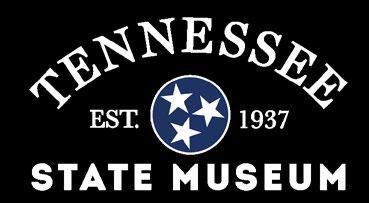

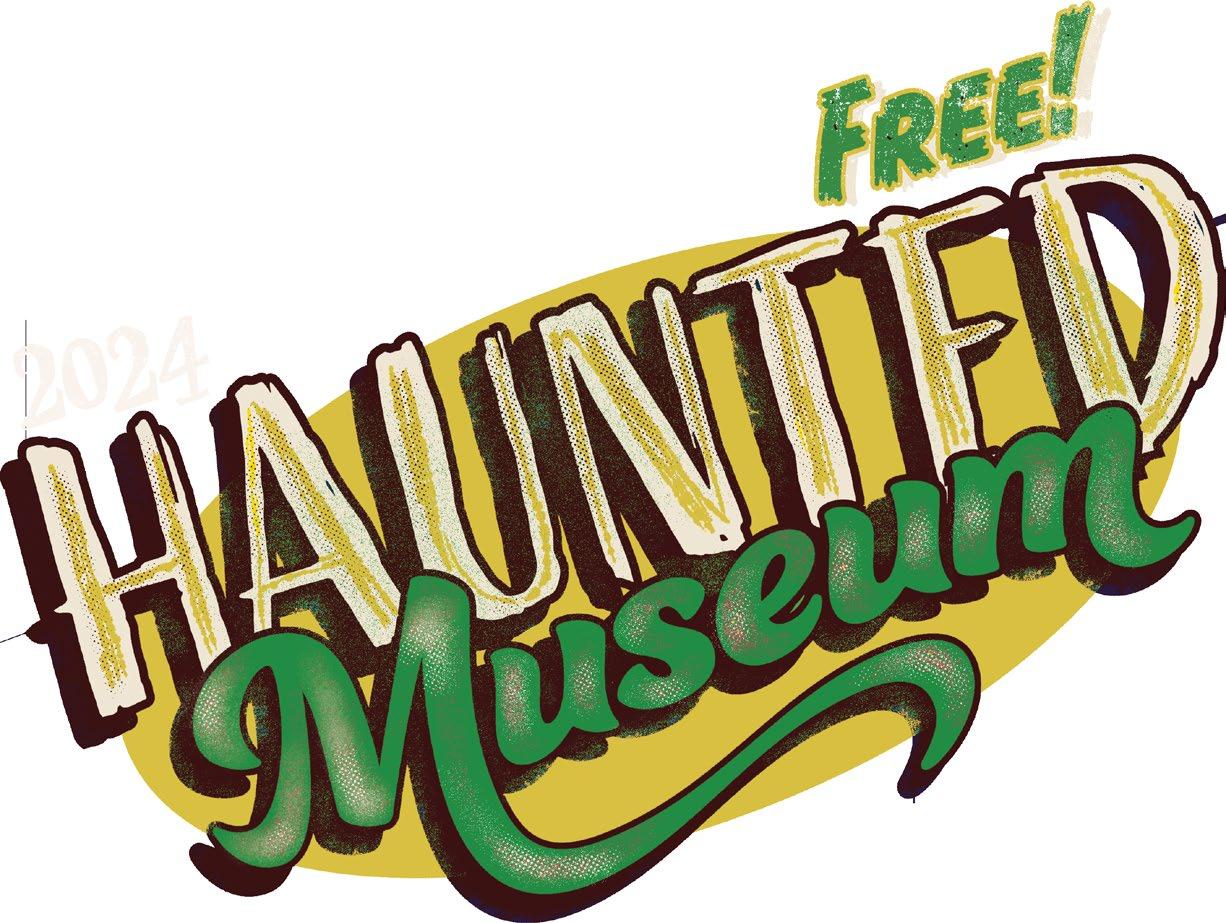
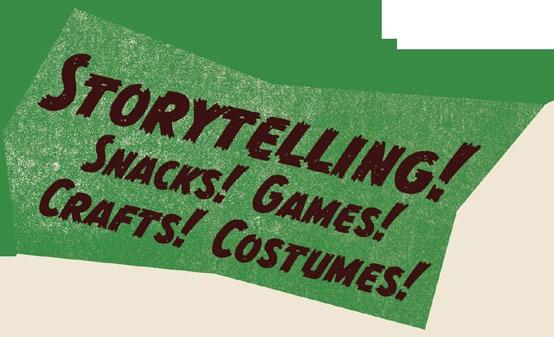








BY RIDLEY WILLS II
Portland is located 14 miles north of Gallatin on the Highland Rim in extreme northern Middle Tennessee. Sumner and Robertson Counties have always been known for their excellent soil and enjoyable climate. Settlers to the area were attracted from the tobacco belt in Virginia and the Carolinas to the Highland Rim.
Fountain Head, located two miles south of Portland, is the oldest settlement in Sumner County. Founded in 1792 by the James Gwyn family, it grew in a century to include a mill, tobacco warehouse, post office, an L&N Railroad depot, and several stores.
In the 1840s or 1850s, Willliam Nolen built a school near Shun Pike a couple of miles north of Fountain Head. The tiny community was called Richland. In 1859, the Louisville and Nashville Railroad established a Nashville-Bowling Green route through Richland. The same year, Thomas Buntin, a direct ancestor of retired Nashville advertising executive Jeffrey Buntin, built a depot beside the railroad track in Richland. Buntin became the L&N’s agent there and the town’s first postmaster. Even today, the railroad runs through the middle of town. In 1871, a seminary was built in Richland. It became Sumner County High School in 1915.
In 1887, Richland’s name was changed to Portland because it had been earlier discovered that there were two Richlands in Tennessee. This caused confusion as mail was often sent to the wrong town.
In the1960s when I-65 was completed in Robertson County five miles west of Portland, the town saw a number of manufacturing plants relocate near the interstate. The first was Diado America which
brought its world headquarters to Portland. Two others with plants near the interstate were Kyawa America and Unipress.
Portland has grown from a small town of 1,000 people in 1930 to 11,486. By 2020, Portland had grown to 13,166. The city is almost entirely Protestant with the two largest churches being the Portland Church of Christ and the First Baptist Church. The Highland Seventh Day Adventist Church is also large. A city staff member said today one challenge the city was facing was finding a more sustainable water supply.
One of the best known natives of Portland is Ronnie McDowell, an American country music artist who was born in Portland in 1950. His most popular song was ”The King is Gone,” a 1977 tribute to Elvis Presley who died earlier that year. McDowell has been generous with his hometown. When the Portland train depot burned, McDowell rebuilt a replica on the same site and converted it into a popular restaurant. He was also good to his children’s friends. Tammy Rogers, a close friend of the McDowells’ daughter, Keva, remembers going with the McDowells to Disney World and Niagara Falls. Tammy also flew with the McDowells in a private plane to a McDowell concert in Kentucky.
Driving into Portland, there is a sign on State Highway 52 that says, “Welcome to Portland, the Home of Corey Brewer,” a Portland High School basketball star who was named Mr. Basketball in the TSSAA’S 2A Division in 2003. He went on to start at the University of Florida before being drafted by the NBA as the 7th pick by the Minneapolis Timberwolves In 2007. The 6’9” forward played in the NBA for thirteen years before retiring in 2020.

The revelation that healthcare and homelessness solutions both include the need for housing should come as no surprise to anyone. But once housing is provided — and we now have private developers building and renting units for permanent supportive housing programs — the need to bring medical care to people where they live continues. Metro recognizes this need and stresses the importance of medical services, which will be (or are already) provided onsite at Strobel House, its new 90unit permanent supportive housing project.
Recently, I have been in multiple conversations where providers have discussed the need for a more coordinated approach to support service delivery, whether that be in street outreach, temporary shelter, or permanent supportive housing. What stood out to me is the continuing discussion of the importance of linking people experiencing homelessness and other highly vulnerable populations with healthcare services.
Last month the Commonwealth Fund, a national foundation that aims to promote a high-performing, equitable healthcare system, released an issue brief outlining Federally Qualified Health Centers (FQHCs), also simply known as Community Health Centers (CHCs).
As defined in that issue brief, “FQHCs are community-based outpatient clinics that provide primary medical, dental, behavioral, and other health care services, [which] are funded through a combination of federal funding, Medicaid reimbursements, and other revenues.” Close to 1,400 centers operated in more than 15,000 service sites during 2024.
According to the federal Health Resources and Services Administration (HRSA), FQHCs meet the following criteria.
They:
• Qualify for funding under Section 33 of the Public Health Service Act;
• Qualify for enhanced reimbursement from Medicare and Medicaid, as well as other benefits;
• Serve an underserved area or population;
• Offer a sliding fee scale;
• Provide comprehensive services (either on-site or by arrangement with another provider), including:
• Preventive health services
• Dental services
• Mental health and substance abuse services
• Transportation services necessary for adequate patient care
• Hospital and specialty care;
• Have an ongoing quality assurance program; and
• Have a governing board of directors.
The Commonwealth Fund’s issue brief entitled, “Community Health Centers’ Progress and Challenges in Meeting Patients’ Essential Primary Care Needs,” outlined findings of a national survey of FQHCs conducted in 2024 and compared them to the last survey completed in 2018. Nearly 740 CHC leaders were engaged to assess whether they feel their clinics achieve the core functions of primary care and what barriers they face.
The highlights of the findings were outlined
BY JUDITH TACKETT
as follows (copied from the online document):
• Nearly all community health centers offer timely appointments (88 percent) and expanded hours for patients to receive care (93 percent). Rural community health centers are more likely to offer timely appointments (93 percent) than urban community health centers (86 percent).
• Most offer telehealth services in 2024 (96 percent), almost four times as many as in 2018 (24 percent).
• Significantly more community health centers have made substance use disorder treatment (66 percent) and medication-assisted treatment (62%) available to patients in 2024 compared to 2018.
• Community health centers face growing workforce challenges, with over 70 percent reporting primary care physician, nurse, or mental health professional shortages in 2024.
• Most community health centers find it difficult to obtain specialty care appointments for their patients (73 percent), particularly those covered by Medicaid or lacking insurance.
Community Health Centers fill a crucial role by providing low-cost, high-quality primary care. When rural hospitals started closing their doors, CHCs stepped in to fill a gap. Yet their budgets are consistently tight.
One important aspect that other healthcare providers don’t do regularly is that CHCs consistently screen patients for non-medical needs like housing, transportation, food, etc., as outlined in the chart below.
Nationwide, these CHCs serve more than 31 million patients each year. Since they are highly regulated, I was able to pull up a ton of data about the populations they serve through the annually released National Health Data report from HRSA.
Here is a sample of the data that was released in 2023 about people served by CHCs (in my highlights below, I only include data that was complete):
• While patients fell into all age groups, most individuals served were between the ages of 30 and 34.
• In regard to race, 69 percent were white, 21 percent African American, 1 percent Native Hawaiian/Other Pacific Islander, 4.2 percent Asian, 1.7 percent American Indian/Alaska Native, the rest fell under other categories.
• About 38 percent identified as Hispanic or Latino.
• 27 percent of patients were best served by another language than English.
• 95 percent identified as heterosexual.
• 41 percent identified as male, 58.5 percent as female, 0.22 percent as transgender male, and 0.23 as transgender female.
When it comes to income, more than 67 percent live at or below the federal poverty level. Only about 20 percent had private insurance. Of the rest, approximately 18 percent were uninsured, about half were on Medicaid, and roughly 11 percent were on Medicare.
The data also reveals special populations
Homelessness Health Care Services by Federally Qualified Health Centers (FQHCs) in Metropolitan Nashville for Calendar Year 2023
3 total locations in Nashville, Clarksville, and Smyrna
2 total locations in Nashville
2 total locations in Franklin and Lewisburg
3 total locations in Westmoreland and Gallatin
4 total locations in Murfreesboro and Smyrna


including people experiencing homelessness. Nationwide, a total of 1,447,033 patients experiencing homelessness were served by CHCs.
In Nashville, the largest CHC is Neighborhood Health, which has 12 sites (13 if we include their mobile medical clinic, which visits encampments and other locations five days each week). Neighborhood Health serves roughly 30,000 patients each year providing medical, dental, and behavioral health services. Between 4,000 and 5,000 Neighborhood Health patients are experiencing homelessness, and two of their sites are mainly focused on serving people experiencing homelessness, even though every single Neighborhood Health clinic has patients
that fall under the unhoused category.
The following information is from a recent report released by Neighborhood Health about its services to the local homeless population.
As you can see, FQHCs fulfill a critical service not only for the homeless population but also for anyone who is underinsured, lives in poverty, or simply has a tough time accessing healthcare and other services where they live. Locally, our Community Health Centers have fulfilled critical leadership roles in their communities. Read our Q&A with Brian Haile, CEO of Neighborhood Health, on page 8 to learn more about the impact these clinics have on our vulnerable neighbors.








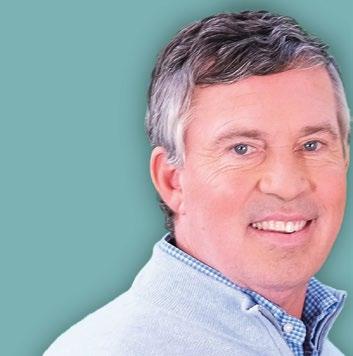




























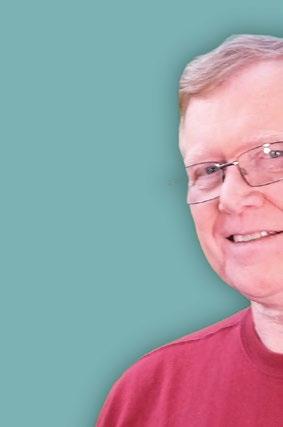





















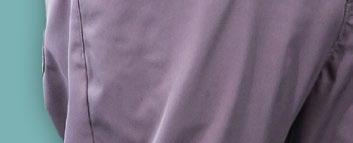




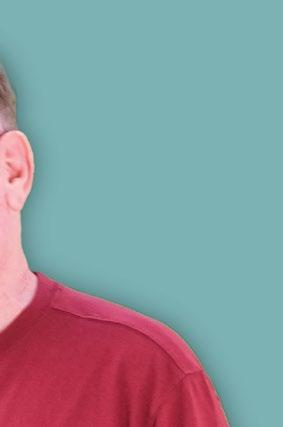





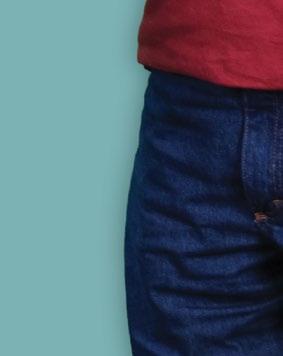





























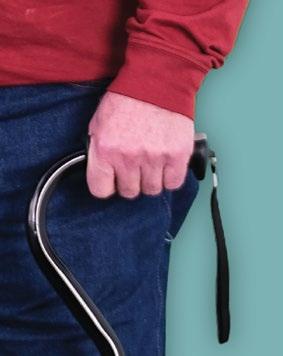








Brian Haile, CEO of Neighborhood Health, said he initially did not want to go into the healthcare sector at all. Instead, he wanted to be a diplomat and join the Foreign Service.
However, the federal government canceled the foreign service exam just at the time he would have qualified to take it. Haile, who holds a law degree and master’s degrees in public policy and health economics, said his graduate school mentor showed him the connections between economics, program development, and service delivery. It fascinated Haile and got him hooked.
The mission of Neighborhood Health, a local nonprofit organization and the largest federally qualified health center (FQHC) in Nashville, is, “improving the health of our community by eliminating barriers to care and serving as a healthcare home without regard to the ability to pay.” It’s the perfect cross section of all of those connections he gravitated toward in school.
After living two years in South Africa where he worked in an HIV clinic, he returned to Washington, D.C., where he was working for the District of Columbia’s Medicaid program. He then became a consultant for about eight different Medicaid programs, and when the opportunity arose to return to his native state of Tennessee and be closer to his five nieces, he took it.
“I've always been really interested in how to connect budget, politics, program rules and legal structures with service delivery,” Haile said when asked why he moved from working for the state to taking over a healthcare nonprofit. “It was just a natural thing to move pretty seamlessly from state government, which is a wonderful experience, to something like Neighborhood Health, which is by far the best job I've ever had.”
How would you describe Neighborhood Health and its primary role in the Nashville health care system?
We are the most interesting medical and dental practice in the area and probably in the state. We have two clinics that focus on people experiencing homelessness, two clinics that are primarily focused on individuals who are immigrants and refugees, two clinics that serve public housing communities, and two clinics that serve rural areas. And we have five or six other clinics that serve all of the above.
We are a really diverse medical practice. Three quarters of our patients are persons of color, and in fact, Neighborhood Health serves more African Americans than any primary care safety net provider in the region. We serve twice as many Hispanic patients as both other national health centers combined.
So, it's a wonderful place to work. It's a very interesting place to work and by being the largest safety net provider of primary care in the region, what we do makes a difference.
Where are the locations of the clinics serving people experiencing homelessness?
We have the Downtown clinic, which people are going to recognize because it is right next to Room In The Inn and very close to the Nashville Rescue Mission. And we had a clinic at the Mission. That clinic was mothballed because we turned it into a COVID quarantine facility in March of 2020, back when we thought that
BY JUDITH TACKETT
we would need about seven beds for COVID quarantine. Those were different times, and we know a lot more now than we did then.
We sort of replaced that mothball clinic with our street medicine and mobile unit that's doing rounds in encampments about five days a week right now. So, those are the clinics that are almost exclusively focused on homeless folks.
I want to be clear though, at every single one of our 13 locations. We serve anybody, and that includes individuals experiencing homelessness. When I look at the data for 2023, we absolutely served individuals experiencing homelessness at every single location.
Neighborhood Health is a strong partner in addressing homelessness in Nashville. What would you say are your most successful services that focus on addressing homelessness?
When I got here I kept thinking that what we do in the Downtown clinic, in terms of regular ongoing chronic care, was going to be the most impactful thing, and trust me, it makes an enormous difference! But the dental program was something that really struck me, and that I've come to understand is really life changing. If your front teeth aren't OK or if they’re lacking entirely, it’s really hard to get a job in Nashville, even in this labor market. By restoring function and doing some dental stuff, it really improves someone's employment prospects. So, I think the dental program is really important.
The second problem that we don't talk about a lot, but really merits more attention is what we do on the substance abuse side. We have an intensive outpatient program for men with co-occurring mental health and substance use issues. We have a really strong partnership with Welcome Home Ministries where they provide the housing supports, and we provide the clinical services through [our] intensive outpatient program. It’s really been transformative. In fact, one of the patients who was treated in that program later went on to serve nine years on our board. He just stepped off the board last year after successfully completing that program, obtaining housing, and maintaining his recovery for all of that time.
During the COVID pandemic, Neighborhood Health partnered closely with Metro to coordinate vaccinations and other health services for the homeless population. What have we, as a community, learned from that time?
I think one of the things that was interesting about the pandemic is it did not allow for process. We couldn't get in a room and have consultations. We couldn't have open-ended discussions where people use a whiteboard and think things through. We had to get really creative about how to figure [things out]. What that forced us to do was do our homework before we got on Zoom, and be very prepared. We had to be able to explain it in ways that would make sense, even though we didn't have a lot of materials to share back and forth.
[As an example,] it took about two or three weeks to come up with a plan, where we wanted to make sure that everybody experiencing homelessness in Nashville could have access to a COVID vaccination by Memorial Day 2021. We were able to do that.
Has that impact lasted and is continuing?
There are two things that we've got to pay attention to. One of which is people are tired, and that's not insignificant because when we were starting to [address] COVID, we were coming out of a tornado response. We jumped into ‘what are we going to do about this pandemic?’
We pivoted at the end of the summer of 2020 to a COVID-testing response. We moved into a vaccination response. Then we went into, well, if you do get sick after you're vaccinated, there's this new antiviral called Paxlovid.
There was always something new. Over time, that has taken a toll [on people]. Understandably, there are people who are burnt out and have left this sector. That's just a reality for all of us and that makes it a little bit more difficult to keep this pace, this momentum, going because some of those partners aren't there anymore.
The second thing that's different is, when you're in startup mode and when you're working with a public health emergency then you throw all the rulebooks out. Well, some of those rules are important. The lack of infrastructure, the lack of systems and processes were just a reality because, again, we didn’t have a playbook.
But playbooks are there for a reason and so part of what we have to get back to is the boring parts of personnel and procurement policies and learning how to work within those personnel and procurement systems, so that we can keep this energy alive the best we can. That requires real leadership and frankly, really incredible ingenuity on the part of the people inside the government that really understand personnel and procurement.
My old boss, the welfare director in Washington, DC, used to tell me, she said: ‘Brian, it doesn't matter if I know the difference between a postage stamp and a food stamp. If I can't do personnel, if I can't do procurement, I can't do this job.’ And that's exactly right. So really having government insiders that are smart about how they're maneuvering those systems and that are really talented in how they help communities build capacity, I think that's really where the magic happens.
Do you think Nashville is prepared for a new pandemic? Where are the strengths and weaknesses?
Nobody is prepared for a new pandemic. I want to say that first and then say, and Nashville is part of that group, too. But Nashville is hardly alone.
We’ve done a lot of patting ourselves on the back for how well we responded, and we should because we deserve those accolades. Nashville as a community, I think responded really, really well. But are we ready for the next one? No.
Because what the next one involves is a tremendous amount of uncertainty, lack of clarity, lack of federal direction and guidance, real hostility from certain corners of the state legislature. So, it's going to be even more difficult to do that going forward. There's probably less authority that the Mayor and the city have to respond [to a future pandemic]. There's probably less infrastructure in place with the Health Department because of the turnover that's happened there in the post-pandemic space. Everything that we learned, the people who learned it best, are probably not there any longer.
I am very concerned that if we had a widespread outbreak of Mpox in a daycare facility that spread to other daycare facilities. Where would we be? How would we react? What legal authorities are in place for the Public Health Department to take action? I'm pretty worried about how that plays out.
What are the barriers when addressing homelessness and health care, and what are the items that could be done now to remove some of those barriers?
One thing that I think merits attention is the time tax on the poor. Metro and really all of us do a really bad job serving the poor because the first thing anybody does, whether it's a nonprofit, healthcare provider, or government agency, is we stick a bunch of forms in front of someone and say fill this out.
I really want to make sure that when someone applies for utility assistance through Metro Action Commission, or when they apply for WIC through the Metro Public Health Department, they're not having to fill out form after form after form. That's important because the people who need rent probably also need utility assistance. But right now, they have to go to different offices, fill out different forms, and those forms look a whole lot like the ones they filled out at the six different places that their church sent them to before they got to those offices.
One of the really boring things I'm excited about is [to explore] how we streamline that process. We're in conversations with different homeless service providers, shelter providers, to [figure out] if they do an intake, how do we import data from them so that we really minimize what a patient has to fill out when they come to see us and vice versa.
The second thing that we really need to think about is if we're helping people who by and large just need to get back up on their feet but they’re already working. Let’s figure out how we do that while reducing their time tax so they can spend their time making money and improving their lives.
Conversely, when we're working with people who are disabled, we've got to acknowledge who takes the biggest time tax on the poor [which is the] Social Security Administration. On average, it's about 27 months to a disability determination. During that time, those individuals don't have any access to income because they're disabled, they can't work. But they have to wait all that time to get that disability determination from Social Security.
What Metro can do is exactly what Oakland, California, and Washington, DC, and a number of other large cities have done, which is put together an interim disability program that helps people who have applied for SSI. It gives them a little bit of money each month while they’re waiting for that SSI check to come in. And when the SSI check comes in, you know what happens? The city gets paid back for all the benefits that it paid out. But while we're providing that interim assistance, that's money the person can use to get a room. And if we just had that program in place that would probably be the single most helpful thing that I can think of that would help people, especially people who are disabled, access housing that they can't today.
“The Contributor” está trabajando con uno de los principales periódicos en español La Noticia para llevar contenido a más lectores en Middle Tennessee. Nuestros vendedores de periódicos han pedido durante mucho tiempo que nuestra publicación incluya contenido que apele al interés de residentes de habla hispana en nuestra comunidad.
“The Contributor” is working with one of the leading Spanish-language newspapers La Noticia to bring content to more readers in Middle Tennessee. Our newspaper vendors have long requested that our publication include content that appeals to the interest of Spanish-speaking residents in our community.
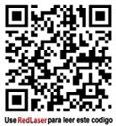
¿Hay historia Indígena en Nashville?
Originaria del Cusco, Perú, la ciudad donde los Incas fundaron su nación, hice de Nashville mi hogar hace más de 22 años.

Soy Loraine Segovia Paz, Directora Ejecutiva de la Fundación de la Cámara de Comercio Hispana de Nashville, y cumpliendo con nuestra misión de fomentar la apreciación cultural, el avance educativo, social y económico en Nashville, estamos activamente trabajando junto con la Coalición de Pueblos Indígenas (Indigenous Peoples Coalition) para lograr el cambio de nombre del Parque Cumberland a Parque Wasioto, en honor al nombre original del río Cumberland que la comunidad indigena Shawnee utilizara en los años 1600.
Nashville y el estado de Tennessee albergan hoy a personas de ascendencia indígena quienes han migrado de Latino América, como Guatemala y México. En muchos casos no hablan español, sólo su lengua materna. En el proceso de búsqueda de identidad como inmigrantes, aparte de la humana, tenemos la necesidad de encontrar espacios y conectar con personas con las que nos podamos identificar, de modo que el proceso de adaptación a estas nuevas tierras sea amigable y entendedor. Encontrarnos con nuestras raíces indígenas y reconectar con ellas, como lo hicieron nuestros antepasados ancestrales, hará que nos sintamos bienvenidos y culturalmente reconocidos.
Nashville, su turismo, y la visión que cada uno de nosotros quiere que se refleje ante los ojos de los turistas que nos visitan diariamente son temas importantes a discutir y poder decidir considerando la opinión de todos.

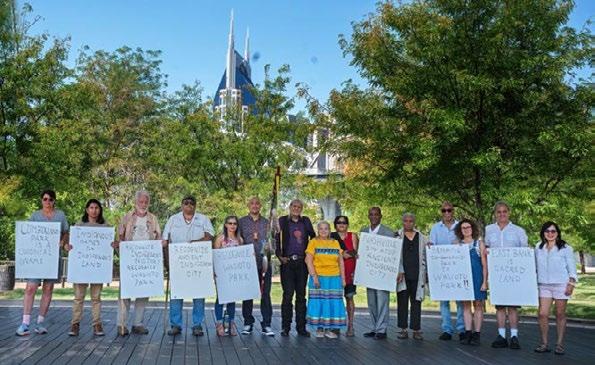
On 8/24/2024, the
En el área turística la industria hotelera de Nashville lanzó recientemente un nuevo plan estratégico que incluye varias prioridades como:
•Mejorar la reputación de la ciudad y la experiencia de los visitantes.
•Atraer más visitantes internacionales
•Incorporar programas familiares
•Promover la diversa oferta cultural de Nashville y desarrollar nuevos bienes culturales.
Cambiar el nombre de Cumberland Park a Wasioto Park, ubicado en el corazón de Nashville, no solo es apropiado sino también crucial. Este cambio reconocerá un espacio para quienes, durante muchos siglos han tenido sus voces, historias y experiencias no sólo ocultas sino ignoradas, ya que la creación de estos espacios y sus historias han sido escritas por aquellos en posición de privilegio y poder.
Al cierre de esta edición, el 3 sept. los miembros del Comité de Nombres de la
Conoce tus derechos: ¿Que hacer en caso de una redada?
1. Mantenerse callado
2. Sólo dar nombre y apellido
3. No mentir
4. Nunca acepte/lleve documentos falsos
5. No revelar su situación migratoria 6. No llevar documentación de otro país
7. En caso de ser arrestado, mostrarla Tarjeta Miranda (llámenos si necesita una)
Basados en la Quinta Enmienda de la Constitución, los derechos de guardar silencio y contar con un abogado fueron denominados Derechos Miranda luego de la decisión de la Suprema Corte de Justicia de Estados Unidos en el caso Miranda vs. Arizona, 384 U.S. 436, de 1966.

Junta de la Oficina de de Parques votaron unánimemente para iniciar el proceso de cambio de nombre.
El 6 de Sept en su Anuncio Público, la Oficina de Parques indicó que la Junta
de Parques aceptará comentarios públicos por un período de 30 días a partir de las 12:00 a. m. del viernes, 6 de septiembre de 2024 y finalizará a la medianoche del domingo, 6 de octubre de 2024. El público podrá brindar su opinión por correo electrónico, correo postal, teléfono o en persona durante la reunión del 5 de noviembre a las 12PM del medio día.
Para dar su opinión llamar al 629-2551200, extensión 51200. Indique claramente si está en contra o a favor del cambio de nombre. Incluya su nombre y dirección. Para informes llamar al (615) 862-8400.
Hay que recordar que al hablar de Nashville, las comunidades indígenas deben ser incluidas, ya que ellos estuvieron aquí antes que cualquiera de nosotros.
Loraine Segovia Paz serves as Executive Director for the NAHCC Foundation and is co-founder and publisher of La Noticia Newspaper Nashville. Envíenos sus sugerencias por e-mail: news@hispanicpaper.com ó 615-582-3757
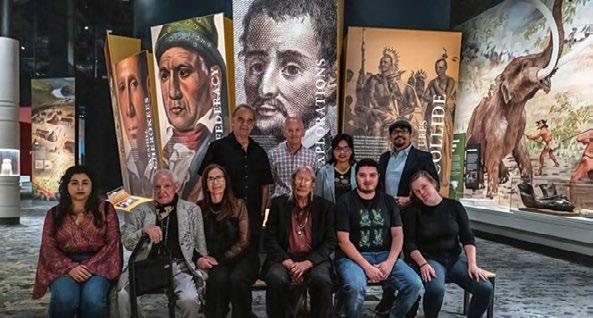
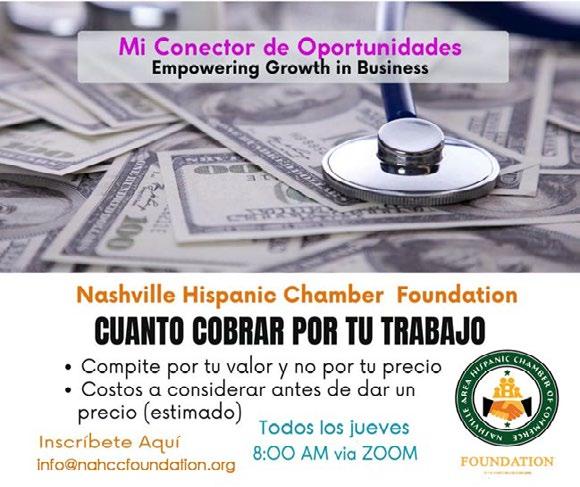

Metro begins to push outreach and faith groups to obtain permits to serve food on Parks’ property
BY INDIA PUNGARCHER
On the afternoon of Aug. 20, seasoned volunteers with nonprofit Colby’s Army showed up at Richland Park in West Nashville as they have done so weekly for over a decade.
The local nonprofit has provided street outreach services to people experiencing homelessness in West Nashville, Bellevue, and Cheatham County for the past 14 years. Now, they also provide peer support services to Nashville residents after they move into per-
manent housing.
This particular Tuesday was different, however, as the group was approached by Metro Parks police upon arrival to their usual spot. Before they could open their trucks to begin preparing to hand out their usual food, clothing, and hygiene supplies they were met with an unexpected request.
Police informed volunteers that unless they had a special events permit in order to serve food in a Metro Park, they would need to leave. If they refused,
they would risk up to a $1,500 fine.
Upon further investigation, what Colby’s Army experienced in late August wasn’t the first of such instances this summer. All For Him Ministries, which also provides food, supplies, recovery resources, as well as church services has been navigating Metro Nashville Police Department’s insistence beginning in July that they too need a permit in order to provide Sunday services at Old Tent City — which lies on land now owned by
Metro Parks. After much time and effort, All For Him was able to obtain an event permit that allows them to provide food at Old Tent City on Sunday mornings for precisely one hour and 15 minutes.
Likewise, Allen G., a current resident at Old Tent City also reports he has witnessed yet another group of members from a local church get run off by the police for serving food on the weekends to encampment residents for not having a permit to do so.

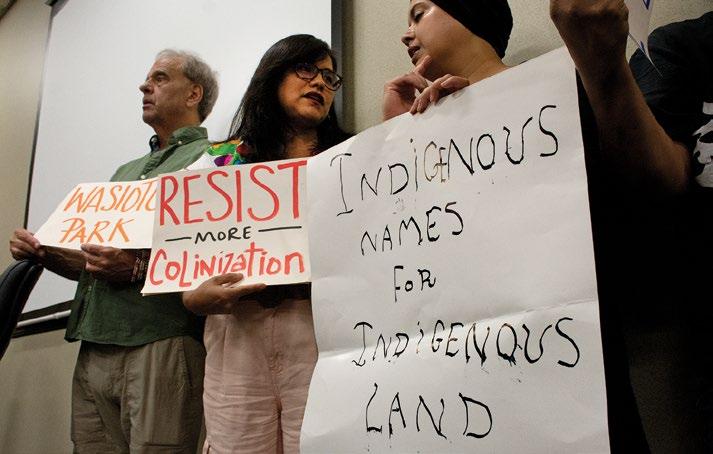
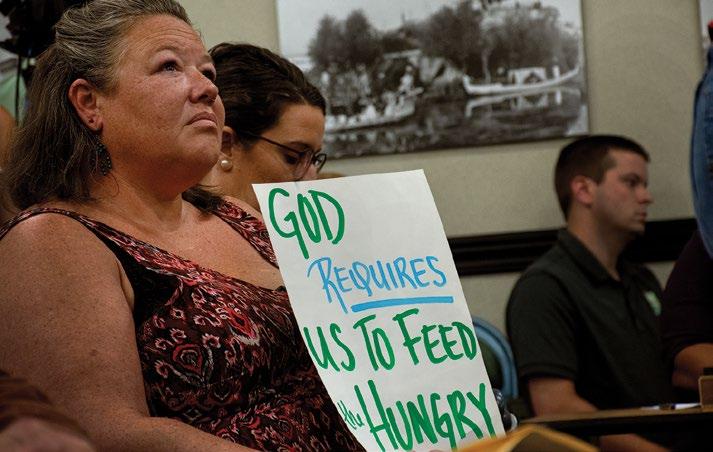
Why does this matter?
Many community members, outreach providers, and faith leaders are concerned about both the intent and implications behind this recent push for groups to obtain permits in order to serve food on Metro Parks’ property.
Many groups do not solely hand out food and then leave; often, they are simultaneously connecting people experiencing homelessness with vital mental health resources, ensuring folks are staying connected with their housing navigators, making referrals to recovery services, providing harm reduction supplies, conducting wellness checks, in addition to providing compassion, care, and connection. As a result, the situation is about far more than food.
There is concern that adding the additional requirement of obtaining a permit in order to serve on park property may act as a barrier to some, making it more difficult, timely, and costly to do so. Some fear enforcement of the permitting process may also intimidate people and groups from serving altogether. As Executive Director of Colby’s Army, Lisa Wyscoky, said in a press release, “This all seems extremely unreasonable and will absolutely inhibit Metro’s plan to get people housed, and implement trauma-informed care. If outreach workers cannot meet their
clients where they are, the homeless population in parks will grow, and homelessness overall will grow, rather than decrease.”
There’s also concern that this permitting process encroaches on protected constitutional rights. In 2018, Southern Legal Counsel filed suit on behalf of Fort Lauderdale Food Not Bombs in Food Not Bombs v. Fort Lauderdale after the Florida city implemented an ordinance prohibiting outdoor food sharing as a social service and arrested multiple people for sharing food in public places with people experiencing homelessness.
Southern Legal Counsel reflected that, “In a twist on the criminalization of homelessness, local governments are now arresting and citing people who wish to help unhoused people, using laws that restrict the use of public space through permit requirements or force groups to comply with food safety requirements. Due to [our efforts], food sharing is now considered protected expression in the 11th Circuit, and governments restricting expressivef food sharing activities are subject to First Amendment scrutiny.”
Lack of clarity results in uncertainty
In response to questions about enforcement, Metro Parks has cited section 3000.40 of the Metro Parks and Recreation Policy Manual (approved March 6, 2007), which outlines that,
“Public food distribution in Metro Parks is permissible: A. at events permitted by the Metro Parks; B. when such distribution is sponsored or co-sponsored by a department or agency of the Metropolitan Government or C. by permit issued by the Director of Metro Parks.”
Still, many questions remain. For example, there is no event permit application available online that appears to be intentionally designed for groups intending to serve people experiencing homelessness on a routine basis. There has also been confusion over the cost to obtain a permit intended for this specific purpose.
At the Metro Parks Board meeting on Sept. 3, the board voted unanimously to approve Colby’s Army’s permit application to serve in Richland Park on Tuesdays moving forward. The group did not have to pay for this permit. All For Him Ministries, however, had to pay $85 to obtain their permit. Will they have to pay this fee each Sunday they serve food at Old Tent City? Why would one group have to pay while others do not?
There are a handful of additional groups who also distribute food and provide services at Old Tent City, again which is on land now owned by Metro Parks. To my knowledge, they have not had to obtain permits to do so thus far. How will Metro Parks uniformly enforce this seemingly new application of a now seventeen year old Parks policy that, until now, went
unenforced? How many people can someone serve food to without needing a permit? What happens when an outreach provider needs to access an individual or even a group of people experiencing homelessness in a park on a date that is not pre-planned? What happens when we experience extreme weather and people emergently need life-sustaining items like water, food, and camping supplies?
Many questions remain, as outreach providers, faith-based groups, and concerned community members will undoubtedly continue to push Parks for clarity on this matter in the months ahead.
As this situation unfolds, Nashville needs to decide where it stands in regards to the “twist” on the criminalization of homelessness that Southern Legal Counsel warns of: Do we want to be known as the city who penalizes those who simply want to help?
India Pungarcher is the Associate Director of Advocacy at Open Table Nashville. She spoke at the Sept. 3 Metro Parks Board meeting on behalf of the outreach and advocacy organization founded in 2010. Through her role at OTN, she has been involved in documenting instances of and obtaining information related to Metro Nashville entities’ interactions with both people experiencing homelessness and people serving on public property.
Neighborhood Health started with one single office 40 years ago basically to aid the homeless and those without insurance. A lot has changed since it’s opening in the late 70s. There services now extend to the poor and even the working poor. 13 locations today scattered throughout Davidson County, Lebanon as well as Hartsville.
The downtown location has been dubbed “The Homeless Clinic” and well deserved. “After multiple noncompliance findings by federal auditors, Metro asked
BY VICKY B., CONTRIBUTOR VENDOR
Neighborhood Health to fully assume responsibility for the Downtown location in 2008,” states Brian Haile, CEO of Neighborhood Health. They have helped over 5,000 homeless individuals. It’s located next door to Room In The Inn and a block away from the Nashville Rescue Mission. A much-needed welcome to the community. I first discovered the clinic after several trips to a local ER and referrals that were worthless without insurance. I was finally able to receive medical care after my stroke. No recep -
tionist loudly calling to her co-workers that I didn’t have insurance. I received a paper to fill out and a smile, a top-notch doctor and prescriptions that they filled for me right there at the clinic. They were my lifeline until I finally got insurance through disability and Medicare.
I found out after getting insurance that I could stay with Neighborhood Health. A relationship of trust was built long before and made me more comfortable with sticking with them. Did you know that if you have insurance and go to
BY NORMA B., CONTRIBUTOR VENDOR
When I’m not writing about my customers
Current events or things that happen to me in my day to day life
Or when I’m out and about or on the street
My attention often turns to music
The words convey such meaning
The power they have on our mind and heart is astounding
A song can totally change our mood,
Make us smile, turning a frown upside down
The words can stir our emotions
From deep inside
Even those we try to hide
Music can transport you through time
Reminding you of those you love
A husband, a wife, a child, other family and friends
It knows no age limit,
The beat, the rhythm, the words attract People from ALL sorts of backgrounds
It transcends socio-economic classes and stereotypes
Designed to fit us into a mold by a predetermined set of facts
Over which we have little or no control
It knows no boundaries
It crosses EVERY line
It is impartial, blind to race or gender
In a world that’s SO divided
By the news media, politics and religion
I find music to be a respite, quite refreshing!
Like the communities in which we live, Genres meld blending different forms to create something new and different with its own appeal
That’s pretty amazing! Don’t you think?
Yes, all of this can happen in 3 or 4 minutes Such a brief measure of time
Yet it can accomplish SO much!
People come together in a harmonious chorus of rhythm, and rhyme
In just a few notes or lines of a song!
one of the clinics it’ll help those without insurance? How can that be? Neighborhood Health is a non-profit and every time someone with insurance comes in, the fees they collect from the insurance company goes to help pay those without insurance. What a wonderful way to give back to those less fortunate.
Clinics are staffed with physicians, nurse practitioners, midwives, and psychiatric personnel. Dental services are now in four clinics: Cleveland Park, Lebanon, Napier Place and Welshwood.

BY FREEPRESSGMA, CONTRIBUTOR VENDOR
Both my friend and I have mental and emotional injuries. But we enjoy cooking for each other and we can deal with each other's chaos while we try to help each other! For instance, she tripped over my new drafting table while we were trying to put it together. Everybody’s OK, including the table!
Anyway, I was explaining to her about the plants on my porch and how I put old food in the ground to make compost.
“So if you put food in the ground, it will make dirt?“
“Yep. Mate, nature makes dirt out of everythin’.”
“Includin’ us!“
“Yep. I would make good compost too, but don’t put me in the garden, else you’ll accidentally dig me up one day.”
“Ha ha ha! That is too funny!”
We laughed for quite a while before
we got back to the subject.
So Vicky says to me, “Most of us that have worked have worked for almost nothin’ till we’re all broke down.”
“I know, right? It’s like all the baristas, service station attendance, janitors, fast food, workers, retail store, attendants,janitors are all just garbage if they can’t pull themselves up by their nonexistent boot straps!“
“That’s right, we are just nothin’ to them if we happen to have a problem! Or if we can’t seem to handle having nothin’!“
“Well, let’s go on to better things like the fact that we are here now and we have a place to live!”
I’ll drink a Mr. K’s frosty cold one to that!
I’ll buy if you fly.
Dialogue by FreepressGMA and Vicky Tini
BY WILL CONNELLY
People asking for money on street corners. Individuals sleeping in doorways of businesses, in the shadow of towering developments. Encampments springing up on public and private land. A Supreme Court decision criminalizing people for sleeping outdoors when no shelter is available. Families sleeping in cars. And the latest, a heated local debate about whether outreach groups can hand out basic necessities — water, blankets, food — to people who are unhoused on Metro Parks property. These are the symptoms we spend hours discussing in board meetings, on task forces, and in community planning sessions. And yet, for all the time and energy spent on how we react to these symptoms, we rarely stop to consider the causes.
A system should be more than a reactionary machine addressing surface-level problems. A helpful system — one that could actually end homelessness as we know it in Nashville — must begin with
shared goals, created and embraced by the entire community, especially those with lived experience of homelessness. In this system, we all know the goal, and we are working together to achieve it. It must also be built on a shared understanding of what truly works: a person-centered, data-driven approach that prioritizes rapid access to stable housing. We need to support Nashvillians with the greatest health and safety risks first, rather than just managing the symptoms that make homelessness visible.
Right now, the system in Nashville is broken. Much of what we see in Nashville’s response to homelessness focuses on managing symptoms, not fixing the system that produces them. Instead of tackling the root causes — like the lack of actionable and affordable housing, the lack of clear access points to obtain support, inadequate health services, and structural barriers that keep people in cycles of poverty — we are caught in a

cycle of reacting to visible problems. This approach keeps homelessness manageable, but it does not eliminate it.
To create meaningful change, leaders and funders must step up and commit to restructuring the system. We need funders of our system to be nerdy about homelessness — passionate about evidence-based strategies that work. We need the funders to get into heated discussions with each other about the best ways to use the money and authority they wield. Without strong leadership driving this shift, we remain stuck in a loop, trying to make homelessness less visible rather than making it rare, brief, and one-time. This means changing how funding decisions are made, moving from tradition to outcome-driven investments that prioritize getting people into permanent housing quickly.
I have been part of this work for 20 years now, and I can’t help but reflect on my role in creating a system that doesn’t
work as it should. I’ve been in the meetings, I’ve had the money and authority, I’ve been at the tables where these decisions get made, and some of the blame lies at my feet. It’s humbling to admit that. But I know we can do better.
The role of funders cannot be understated. They have the money, and money changes behavior. Funding decisions should be grounded in effectiveness. Programs need to be evaluated based on how well they move people into permanent housing and how effectively they reduce the number of people experiencing homelessness over time. Accountability must be at the heart of this system, with performance-based contracts that make sure every dollar invested contributes directly to ending homelessness, not just managing it.
A system that works can only be built when we stop reacting to the symptoms and start addressing the root causes, with a clear vision shared by the community.
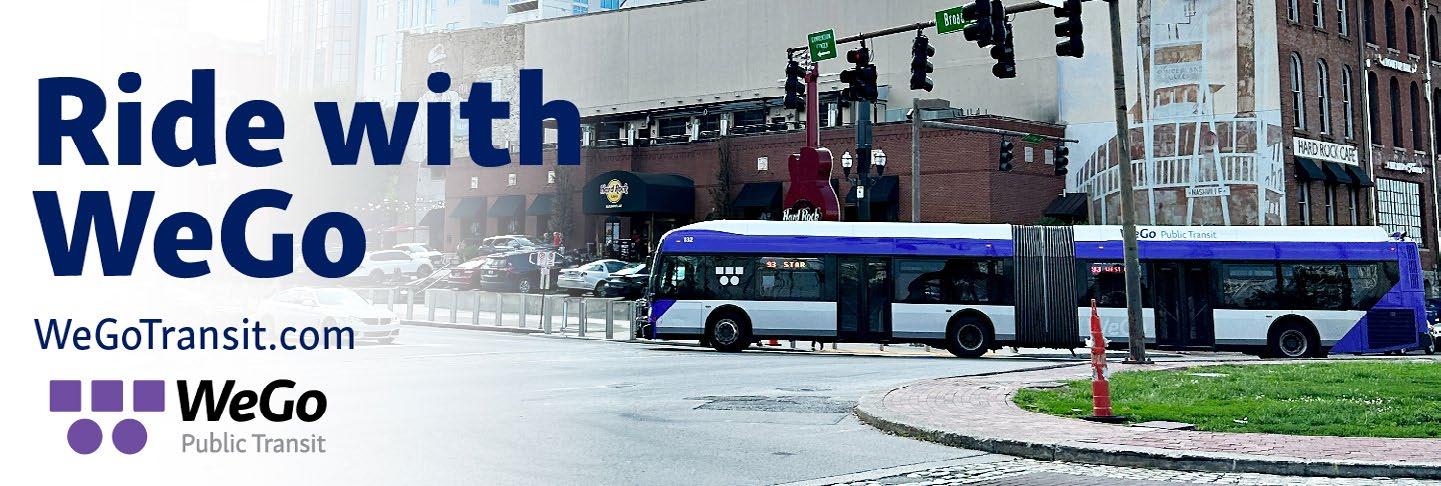

73. Stiff grass bristle 74. "Hobby" animal DOWN
1. Beckham of "Spice Girls"
2. Turkish honorific
3. Not far 4. Look into 5. In the Land of Nod
6. Online conversation
7. *Cushion for certain seasonal ride
8. Naked protozoa
9. Obtuse, as in person
10. ____ bowl, frozen dish
11. Largest human organ
12. Precedes Kong
15. Hindi courtesy title, pl.
20. Modern-day aqua-lung, acr.
22. Domain
24. Wood-eating house hazard
25. Involuntary contraction
26. Chef's headgear
27. Phil Collins' "____ Be in
My Heart"
29. *Maze plant
31. Upward and onto
32. Wide-____ notebook
33. *Like leaves in fall
34. Stall call
36. *Much-used fall garden tool
38. Not any
42. Extend subscription
45. Unquestioning ones
49. Fraternity house
51. Miss Marple, e.g.
54. "Is Your Mama a ____?"
56. Dom DeLuise in 1980 role
57. Rubik's puzzle
58. Away from port
59. The state before riches?
60. Malaria symptom
61. Saw, sawed, ____
62. Drop of sorrow
63. Makes a mistake
64. Precedes shine
67. Gift topper
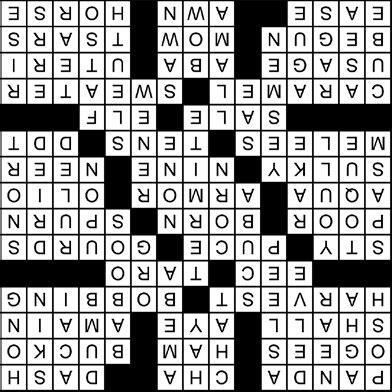
Written by Chris Scott Fieselman, Vendor
Nobody ever said, that Life would be fair. It’s easier to say, “It Sucks... So What... I really just don’t care.” Some sorrows you go through, Nobody can share. But, never forget, That “God’s Always There.” And blessings sometimes come, After months of despair. Never forget, what really matters? In this life what is really, Worth going after? What makes you so precious? What makes you so rare?
When you’re one of a kind, There’s no one else to compare.
Do I look scared? I ain’t Scared.
I’ve been there... I’ve already been there...
I Love a challenge. Bring it on if you dare?
I’ve seen my fair share if rips and tears, And I’m still here, Without doubt... Without fear... And proud to say, That “I’m not going anywhere.”
Still a long ways away from a rocking chair. Keep Believing... Keep Reaching... And be of Good Cheer, When it seems like your dreams, Are becoming nightmares. Your Hour of Doubt’s, About the Power of Prayer, And where do you go from there? Where do you go from there?
Do I look scared? I Ain’t Scared... I’ve been there... I’ve already been there...
When problems come calling, “Be Ye Prepared.” Better to have it and not need it, Than to need it and not have it. That’s what I have always said. No matter whatever you lost. Whatever it cost. There’s more to living life, Than just living for the day that you’re dead. From the rising of the sun, Till the going down where it sets. Always count your blessings, And forget about your regrets. I like traveling the treacherous trail, Where others fear to tread.
Do I look scared? I Ain’t Scared... I’ve been there... I’ve already been there... And I Really Am Not Scared...
Performance Video available on YouTube. Piano by William Taylor, Vocals by Kyle Gordon. Filmed at Downtown Presbyterian Church, Home of “The Contributor” Street News Paper. Posted and Produced by Chris Scott Fieselman.
Oh, there are so many things we remember. Moments that we’ll never forget. Like where we were when it happened, And the whole world felt the affect.
A cry across a nation, From sea to shining sea. What happened on 9/11, Changed the world for you and me.
But we came together, As sisters and brothers. We cared and were there for one another. When we watched those towers fall, There was New Yorker in Us All.
From Maine to California, In everybody’s family tree. There’s a distant family member, Who landed in, New York from across the sea. While we witnessed, The hurt and the horror. The loss of human life. Lady Liberty, Watched from the harbor, With a tear in her eye.
But we came together, As sisters and brothers. We cared and were there for one another. When we watched those towers fall, There was New Yorker in Us All.
Now, it’s not likely to be forgotten. The pain goes on for years. Though we caught up with Bin Laden, The danger didn’t disappear. And though we’ll never let it happen again. The hardest lesson that we learned. Inside of every Red-Blooded American, The Heart of a New Yorker burns.
When we come together, As sisters and brothers. We care and are there, For one another. We remember those towers fall. When we remember those towers fall. We remember those towers fall, And we know, There’s a New Yorker in Us All.
I overheard a conversation today between two strangers who were listing all the things they’d do if they didn’t have to work. They talked about all the volunteering they would do. All the new skills they would master. One said they would take food to all the hungry people in town. The other said they’d become a pro-bono therapist. I think that’s amazing, Virgo. But I’m afraid if I didn’t have to work I would just sit at home and distract myself with movies and video games and hypothetical politics. What would you do, Virgo? It doesn’t have to be something great for the world, but it should at least feed your soul. Why don’t you do a little bit of that this afternoon?
So, hey, Libra. You probably noticed that I ate the plums that were in your fridge. Thanks for buying those, by the way. But I wanted you to know that they were, honestly, kinda mid. The two small ones were so mealy that I threw them out after a couple of bites and, while that bigger pale one was pretty juicy, I think it was a few days past its peak and the flavor was a little off. I know you were looking forward to those but there are better plums out there. And I think you deserve better plums.
Could you step over here, Scorpio? It’s just, well, I don’t want to embarrass you, but you’ve got the most pronounced cowlick on the right side of your head. Maybe I could just flatten it out a little bit…no that’s not gonna work. That’s one very persistent lock of hair. Maybe if you went over to the sink and ran some water through it? Sometimes, Scorpio, there are things about us that stick out in ways we wish they wouldn’t. And maybe today instead of trying to mash them down and comb them over, you could just let that be who you are.
Remember a couple of weeks ago when you were feeling sad and I told you we should go on a walk sometime and talk and then I just never followed-up? I guess I thought you were feeling better and I got real busy doing all the things I do to keep from noticing how I feel and we just didn’t talk much about it after that. Anyway, Sagittarius, I hope it’s the case that late is better than never, because I’d still like to take that walk if you’re up for it. Even if you don’t go with me, it might be a good week to go with somebody.
So what’s your take on the whole situation we’ve got going on lately? You know the one everybody’s had so much to say about this week? I was just wondering what a Capricorn perspective on that might be. I mean, even if you're not comfortable speaking for all Capricorns, I just thought you could say what you’re thinking about all this. But let's not stop there, Capricorn, the general situation is only worth talking about if it’s a warm-up for talking about your very specific situation. And mine. Now it’s not a discourse, it’s a conversation.
Alright, so I finished the laundry and emailed the vet and oiled the door hinge and called the guy who’s selling the fishtank and I raked the compost and moved the boxes off the porch. And now I think my to-do list is…well, I think it’s done, Aquarius. And I know I should feel great about that, but, honestly, it’s pretty terrifying. Now it’s just my thoughts and the brevity of the future as it moves toward me. Getting caught up can be concerning, Aquarius, but I encourage you to let those feelings come. Before you add another item to another list, find out how you’re feeling.
I just started watching season 3. I’m a couple of episodes in and, honestly Pisces, I’m a little lost. It’s just been so long since they released season 2 and now they’re bringing in characters we haven’t seen since, like, the 3rd episode of season 1 and I don’t remember how these characters are related or why they hate each other so much. It’s kind of exhausting. I like it better when they do a little “previously on…” at the beginning. Just a few scenes to get me caught up and oriented. Similarly, Pisces, you might be forgetting how you ended up in these rooms with these people. It might be a good time to do a little recap of what’s happened so far. You might remember where you’d rather be.
When do you feel the most in-charge of your present moment, Aries? Like what are the moments that make you feel in-control? Is it when you’re at work? Or when you’re in the car on the way to work listening to whatever you want and singing along? Or is it when you get home from work and you take off your shoes and the rest of your day is wide open? How could you bring that feeling to more parts of your day, Aries? You can start with an easy one. Close your eyes for a moment and know that you are in charge of what you do next.
They sent me an invitation to your retirement party, Taurus. It seems a little early to me, but I guess you know what you’re doing. I mean, maybe you’ve done what you came here to do, but I’d like to encourage you to keep going. If not in that direction, then at least in some direction that fills you up and makes you feel connected to the world you’re in.
I heard you’re getting the band back together, Gemini. I really didn’t see that one coming. You said you’d never work together again. That you didn’t even want to see each other any more. And now you’re booking tour dates and talking about another album? I’m all for reconciliation, Gemini, and I think getting past our differences is always worthwhile. But I want to make sure you’re doing this for yourself and not for appearances or money or guilt. Just because you forgave each other doesn’t mean you have to pretend it never went wrong. Anyway, Gemini, here’s Wonderwall.
As the laser-shield demolishes the last of my hit-points, and I watch my teammates succumb one by one to the sonic-grenades and poisoned-arrows of the opposition, I hear our team leader speak through my headset. It’s clear that his 2 months of 8th grade have brought him more wisdom than could be anticipated and he tells our defeated party “Good practice round, guys.” So I pass that on to you, Cancer, with all the gravity and frivolity it implies. Good practice round. Now let's get back in there and make another run at victory.
I like clean socks and I cannot lie, Leo. Sometimes I get halfway through the day and I put on a fresh pair. Then I get another quarter through the day and I change those out for another. I’m not too paranoid about things being dirty, I just like the way it feels to put on a clean pair of freshly laundered socks. Anyway, Leo, you’ve been walking through some hard things lately and I think we both know you aren’t quite near the end. But that doesn’t mean you can’t sit down and change your socks. It might make the road feel a little less unending.

Mr. Mysterio is not a
astrologer, a trained hairstylist, or a registered therapist. Listen to the Mr. Mysterio podcast at mrmysterio.com Or just give him a call at 707-VHS-TAN1
BY DANIEL K., CONTRIBUTOR VENDOR
Bitter Sweet Melancholy
The Seasons perceive I found me a Sweet apple
This apple won’t deceive You seen it I believe Had to look in between
BY DANIEL K., CONTRIBUTOR VENDOR
I travel through and fro
The Sun is my compass
Get set the journey begins Adventurous Summers overseas Beautiful things and Scenes Appalling life we must live So everywhere I call home.
BY DANIEL K., CONTRIBUTOR VENDOR
Walk a mile in their shoes
The size is different
I often wear black You love white
Others like Vans
Some can afford Nikes
Timberland boots in New York Ice
Some wear them out
Others Donate.
Because cops have badges on they think they can do anything. I heard from a friend of mine that the cops recently harassed and beat a trans woman. I hope they lose their jobs and someone does to them what they did to that person. They had no right to do that. Just because you are a cop doesn’t give you the right to beat up anyone you want. They have no right to do that. None whatsoever.
BY JULIE B, CONTRIBUTOR VENDOR
Cops like that are slime and shouldn’t be cops. I don’t care what is pinned on your chest, innocent people shouldn’t be harassed or hurt. There’s going to be a march because of what happened to that trans person and I support it. Just FYI, the harassment needs to stop. Just because you are different doesn’t mean that you should be beaten up or harrassed. Just because you have a badge
on doesn’t mean you should be exempt from the law. Just because you are a cop doesn’t mean you should be above the law. You will face judgment from God himself. The Bible tells us to treat others as we would want to be treated. The police need to work on protecting people, not harassing them. Protect and serve. Maybe it should say “protect and serve some.” I think homeless people should
be running this city. Maybe things would get done. This angers me to the fullest. How can we feel safe if we have prejudiced cops on the streets? You can’t just harass or beat or kill anyone you hate. This is how homeless people and gay people in Nashville are treated and anyone who is different from the rich people. We all matter. Not just the rich people.
If any human being closes their eyes and will try to imagine an eternal timeline of our God. It won’t matter if you picture this timeline left to right or vice versa. Even if you can imagine this timeline going directly away from you, It will always end in a tunnel of darkness, so if you try to fix this problem by illuminating this tunnel and bringing it close to you, it will still end in darkness of the tunnel. This is the physical proof that God let in us all that you will be at my limit, not yours. That which lies on the other side of this tunnel is amazing. I am probably never going to expose this. I will only say that unless you are invited to see that which is on the other side of this tunnel, you have zero chance of entering into this language of hyro. The thoughts simply won’t come!! You aren’t invited!!
BY JEFFREY W., CONTRIBUTOR VENDOR
However you can plainly see or not see, that we can’t even imagine eternity. Yet we know all.
Years ago I saw the tunnel. I had no idea that it would take me 12 years to earn every inch to the other side with the ability to share thoughts with our God. The invitation was clear, the pathway was anything except that. No other human can follow my steps even if I shared them all because the acceptable sacrifice to us each and everyone is different. So if you are ever one hundred percent certain that you have got a calling on your life which is an invitation into this tunnel, you will more than likely have to go alone with no fear. On the other side of this tunnel is nothing but pure thoughts that are his to determine as valid. This is why it’s probably a solo journey even though someone
is next to you at the same time. Every fear, worry or any other emotion will be gone before entering. Otherwise, the only thing you will do is beg for mercy. In which case it becomes only about your thoughts you never bothered to enter properly into the hyro. Point is this, Your journey, our God.
This is the best explanation I can give without fear of belittling our God. So, when you enter into the language of the hyro, you can now see codes and the vast amount of hidden knowledge because you can share thoughts of purity with God and break the ancient codes that are now in English if returned to the original words. They then tie together no matter where hidden. These guys one hundred percent knew this and so they entered every detail into the language of thoughts, they knew
they were leaving a trail that only would be found in plain sight by whoever will be able to enter. They slammed the door shut to humanity by simply saying, “God called the dry land Earth.” No one would question. If they questioned only with a pure heart out of curiosity they could enter.
It is exactly like the movie with Nicolas Cage finding treasure beneath D.C. I value the treasure I can share with all the people of Earth much more than any gold or silver, car or place to live. I want to share my treasure with the people of Earth. Let The Contributor know to share the treasure much more valuable than gold or silver or that which the harlot shares with all the Kings of Earth. The real word of God nestled beneath the Greek Mythology that 57 brave men gave to us all. I want my very old Bible. Who has it?
Selected by Charles Williams
Charles Walter Stansby Williams (1886–1945), the editor of the following selections, is today probably the third most famous of the famous Inklings literary group of Oxford, England, which existed in the middle of the 20th century, and which included among its ranks the better-known and longer-lived Oxford Dons J.R.R. Tolkien and C. S. Lewis—but he was arguably the most precocious and well-read of this eminent and intellectually fertile group. He was also known to have influenced Dorothy Sayers, T. S. Eliot and W. H. Auden. Lacking a proper degree unlike his fellow Inklings, this genius Cockney-speaking author, editor, critic, and playwright was eminently well-versed in both philosophical and theological writings of the remote past as of the present day (the mid-20th century) and used this familiarity to good effect in his poetry, supernatural fiction and his lesser-known devotional selections designed for the spiritual benefit of the faithful in the Church of England. This series of profound quotations, encompassing all walks of life, follows the sequence of the themes and Bible readings anciently appointed for contemplation throughout the church's year, beginning with Advent (i.e., December) and ending in November, and reaches far beyond the pale of the philosophical and theological discussions of his day. It was under his hand, for instance, that some of the first translations of Kierkegaard were made available to the wider public. It is hoped that the readings reproduced here will prove beneficial for any who read them, whatever their place in life's journey. — Matthew Carver
16th Thursday after Trinity
PROSPERITY is the blessing of the Old Testament; adversity is the blessing of the New, which carrieth the greater benediction, and the clearer revelation of God's favour. Bacon: Essays; Of Adversity
IF thou has a woe tell it not to the weakling, Tell it to thy saddle-bow and ride singing forth.
Proverbs of King Alfred.
"THOU thyself," he says, "must go through Christ's whole journey, and enter wholly into his process."
Boehme: True Repentance
GOD glorifies in Himself God glorified in the Son of man.
St Hilary, quoted in Aquinas: Catena Aurea
16th Friday after Trinity
BEES cannot stay in place where there are echoes or reboundings of voices; nor can the Holy Ghost remain in a house where there are a clamour, strife, contradictions and altercations.
St Francis de Sales: The Devout Life
THE Truths of God are connatural to the soul of man, and the soul of man makes no more resistance to them than the air does to light.
Benjamin Whichcote: Aphorisms.
16th Saturday after Trinity
CHRIST went before by nature, and we come after by grace. His nature is more worthy than grace, and grace is more worthy than our nature. And in this he letteth us know fully that we may on no wise follow him to the mount of perfection, as it ought to be in the use of this work, unless we be stirred and led by grace; and that is full truth.
The Epistle of Privy Counsel
ALL truth is shadow except the last truth. But all truth is substance in its own place, though it be but a shadow in another place. And the shadow is a true shadow, as the substance is a true substance.
Isaac Pennington.
Sixteenth Sunday after Trinity
A BROTHER asked Abba Poemen, saying, "Tell me, why is it that when I offer repentance to a brother who is wroth with me I do not see him pleased with me?" The old man said unto him, "Tell me truly: when thou offerest to him repentance, dost thou not think that thou art not doing it because thou hast sinned against him, but because of the commandment?" And the brother said unto him, "It is even thus." The old man said unto him, "Because of this God doth not permit him to be pleased with thee, and because thou dost not offer repentance to him in fulfillment of thine own desire, but as if thou hadst not sinned against him, but he had sinned against thee."
The Paradise of the Fathers
FOR the sake of each of us he laid down his life . . . He demands of us in return our lives for the sake of each other. St Clement.
17th Monday after Trinity
NOW forasmuch as God hath so furnished the world, that there is no good thing needful but the same is also possible to be had; justice is the virtue whereby that good which wanteth in ourselves we receive inoffensively at the hands of others.
Hooker: Sermons
WE must be always on our guard lest under pretext of keeping one commandment we be found breaking another. St Basil: The Longer Rules
17th Tuesday after Trinity
THE man who wishes to prove himself always in the right, in everything that he does, sees, hears, and discusses, and who will not give way and be silenced, will never be at peace in himself, and will have a barren, sullen, and wandering mind; he will prey upon himself, even though he be left in peace by all, and is tried by no outward pressure.
Tauler: Sermons
OH, the dignity, the DIGNITY of mediocre souls! I have known it for a long time, this sinister mockery of my Saviour crucified!
Léon Bloy: Letters to his Fiancée
17th Wednesday after Trinity
IF thou hast broken a vow, tie a knot on it to make it hold together again. It is a spiritual thrift, and no misbecoming baseness, to piece and join thy neglected promises with fresh ones. So shall thy vow in effect be not broken when new mended: and remain the same, though not by one entire continuation, yet by a constant successive renovation.
Thomas Fuller: A Wounded Conscience
TO be free is precisely the same thing as to be pious, wise, just and temperate, careful of one's own, abstinent from what is another's, and thence, in fine, magnanimous and brave.
Milton: Second Defense
17th Thursday after Trinity
THERE is no other righteousness save that of the man who sets himself under judgement, of the man who is terrified and hopes. He shall live. He has the expectation of true life, for, recognizing that this life is naught, he is never without the reflection of the true life in this life, never without the prospect of incorruption in that which is passing to corruption. The great impossibility has announced to him the end and goal of every trivial impossibility. He shall live of the faithfulness of God.
Barth: The Epistle to the Romans.
GOD gave us faculties for our use; each of them will receive its proper reward. Then do not let us try to charm them to sleep, but permit them to do their work until divinely called to something higher.
St Teresa: The Interior Castle
17th Friday after Trinity
HAPPY then that soul, who in the lucid intervals of a wounded conscience can praise God for the same. Music is sweetest near, or over rivers, where the echo thereof is best resounded by the water. Praise for pensiveness, thanks for tears, and blessing God over the floods of affliction, makes the most melodious music in the ear of heaven.
Thomas Fuller: A Wounded Conscience
TRANQUILITY according to His essence, activity according to His nature: perfect stillness, perfect fecundity.
Ruysbroeck: De Vera Contemplatione
Feast of St Matthew the Apostle
[Of the Lord’s Prayer] Many folk, as servants and herdsmen, have more will to pray for special reward that they covet here, than as true sons for the love and the pleasing of our father, God of heaven: and so they set more their likings and business in a private prayer, made of man . . . than they do in this general prayer made of God Himself; the which
without a doubt is most pleasing to Him and most speedful to us. And therefore they be deceived in many manners.
The Mirror of the Blessed Life of Jesus Christ, tr. by Nicholas Love.
IN the beginning truly of my conversion and singular purpose, I thought I would be like the little bird that for love of her lover longs, but in her longing she is gladdened when he comes that she loves. And joying she sings, and singing she longs, but in sweetness and heat. It is said the nightingale to song and melody all night is given, that she may please him to whom she is joined. How muckle more with greatest sweetness to Christ my Jesu should I sing, that is spouse of my soul by all this present life, that is night in regard of clearness to come.
Richard Rolle: Fire of Love
Seventeenth Sunday after Trinity
THOU canst not stand still, because thou livest in the perpetual workings of temporal and eternal nature; if thou workest not with the good, the evil that is in nature carries thee along with it: thou hast the height and depth of eternity in thee, and therefore be doing what thou wilt, either in the closet, the field, the shop or the church, thou art sowing that which grows, and must be reaped in eternity. Nothing of thine can vanish away, but every thought, motion, and desire of thy heart has its effect either in the height of Heaven or the depth of hell: and as time is upon the wing, to put an end to the strife of good and evil, and bring about the last great separation of all things into their eternal state, with such speed art thou making haste either to be wholly an angel, or wholly a devil.
William Law: An Appeal
18th Monday after Trinity
DO not build towers without a foundation, for our Lord does not care so much for the importance of our works as for the love with which they are done. When we do all we can, His Majesty will enable us to do more every day.
St Teresa: The Interior Castle.
WE must confess our sins in order to obtain pardon; but we must see our sins in order to confess. How few of those who think that they have confessed and been pardoned have ever seen their sins!
Patmore: The Rod, the Root, and the Flower
18th Tuesday after Trinity
WE are fools to depend upon the society of our fellowmen. Wretched as we are, powerless as we are, they will not aid us; we shall die alone. We should therefore act as if we were alone, and in that case should we build fine houses, etc.? We should seek the truth without hesitation; and, if we refuse it, we show that we value the esteem of men more than the search for truth.
Pascal: Pensées
THY works praise thee, that we may love thee, and we love thee, that thy works may praise thee.
St Augustine: Confessions



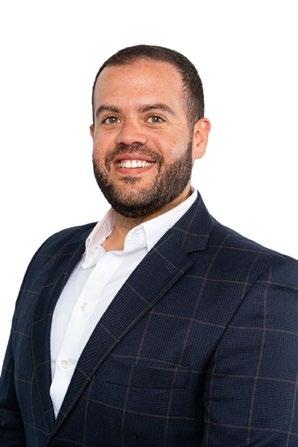


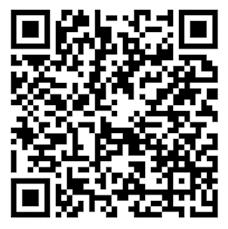



BY JOE NOLAN, FILM CRITIC
Not many people saw Quentin Tarantino’s debut feature film Reservoir Dogs when it was released in theaters in 1992. But indie film freaks were quick to notice an auteur-in-themaking in the fast-talking director from Knoxville, Tenn. Those viewers were delightfully shocked at the movie’s violence, riveted by the ensemble acting of its legendary tough guy cast, and known for quoting the film’s most hilarious lines and bits. As the movie gained cult status following its home video rental release, critics and curious cinephiles dove deeper into Tarantino and the DNA of his ferocious low budget heist film. ‘Dogs lead fans to Ringo Lam’s Hong Kong crime drama City on Fire (1987) as well as the bullet-blasted cinema of John Woo.
John Woo is a pioneer of “heroic bloodshed” films, delivering overthe-top violence and gore with operatic stylizing. Woo pictures like Hard Boiled (1992) and A Better Tomorrow
(1986) found their way onto American movie rental shelves in the wake of Tarantino’s growing success, and Reservoir Dogs fans were quick to fall for Woo’s signature blend of slow-mo acrobatics and bloodbath gun play. Woo himself eventually came to America to direct films in Hollywood largely on the strength of his masterpiece, The Killer (1989).
The Killer tells the story of an assassin who accidentally blinds a beautiful nightclub singer while executing a whole lounge full of baddies. The killer (Chow Yun-fat) falls for the singer (Sally Yeh) and decides to do one last job to pay for a treatment that might restore her sight. He’s targeted by a dogged detective. The pair earn each other’s respect before the killer, the cop and the singer join forces just in time for a straight mayhem gun battle in an abandoned church — the brutality streaming with colored light and flashing in the frantic wings of white
doves, flushing into the rafters in slow motion. The finale introduces Woo’s signature action style for the first time, and its impact registers throughout action cinema to this day.
The Killer is still a killer, and Woo just debuted his own remake of his masterpiece. The Killer (2024) is mostly like its namesake, except now it’s set in Paris, and Chow Yun-fat’s legendary killer-for-hire has been replaced by a hitwoman named “Z,” played by Nathalie Emmanuel. This new cast can’t stack up to the original — Chow Yunfat! — but once the killer and a detective (Omar Cy) go full cat and mouse the film mostly flows well from one bonkers action sequence to the next. Gender/race swapping roles in classic film remakes often feels cheap — a gimmick in lieu of an original idea for a new film. But Woo can do whatever he wants with his own film, and here the great artist revisits his canvas and we get to watch all that red paint splash
and splatter.
There’s plenty of violence and scarlet gore in this new version, even if the romance, existential angst and homoerotic overtones in the original must have been lost in translation. But this 2.0 version of The Killer has churches and doves, shattering car wrecks, breakneck motorcycle chases, and gunfu sequences that still show Woo to be an action master of high order at the age of 77. The Killer is a fun new crime movie by John Woo. It revisits a revered work with fresh faces, and both bullets and ballet.
The Killer is currently streaming on Peacock
Joe Nolan is a critic, columnist and performing singer/songwriter based in East Nashville. Find out more about his projects at www.joenolan.com.
